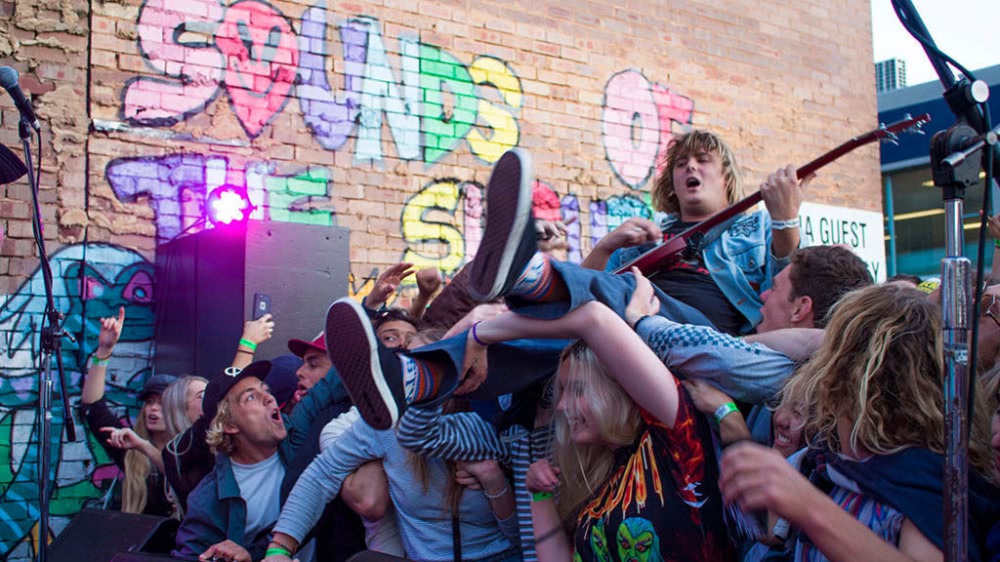The way music is marketed has changed; don’t be left behind

I have a pretty good memory – I’m the kind of guy that could tell you what they had for breakfast three weeks ago. But you know what I can’t remember? The last time a banner ad convinced me to buy something.
I mean it. I can’t recall ever looking at a tiny, low res picture of an artist I’ve never heard of and thinking: “Yeah, you know what, I will shell out twenty bucks to pre-order this album because that press shot and call to action convinced me.”
I’m not alone in that either. Banner ads are going the way of the dinosaurs – a recent news article by Recode noted that growth in banner ads had shrunk by 3.1 per cent by the end of 2016, and the forecast for the end of 2017 is only looking more grim.
Not that any of this should be a cause for concern. Anyone who had any sense leapt out of the banner ad game a long time ago, swapping out dull, lifeless vertical images for the exciting possibilities represented by creating original native content.
At Seventh Street Media, we do occasionally host banners. Although we never recommend them to our clients as a first thought – they’re usually just token add-ons for clients who still need them to report to bosses (with dated KPIs). So, although we’re doing a lot less, we understand people often move with baby steps.
Part of the reason for the shift away from banners can be pinned on the irresistible rise of mobile phone use. Most people aren’t accessing your site on their desktops anymore – they’re scrolling away on their phones, and if there’s one place a banner ad looks even uglier than usual, it’s on a poorly oriented iPhone screen.
But much more significantly, people are abandoning the sinking ship of the banner ads because, to put it simply, banner ads simply don’t work anymore. The ROI on ads is awful. After all, the purchasing habits of consumers are highly intertwined with their emotional states, and we are in the music business: arguably the most emotional and influential art form there is.
So why when an artist pours their heart and soul into an album do we think putting the artwork on a pop up ad will be good enough to sell it? Why do we think that in a market dominated by huge, sold-out festivals, people will buy tickets to an event thanks to nothing but a dull image with a list of artists printed on it?
Festivals like Splendour, Bluesfest, Snowtunes and Sounds of the Suburbs are all doing an amazing job when it comes to building up loyalty with their fans, and that’s because they give them an experience beyond the line-up. Simply listing names on a poster is lazy and uninspired – and you only have yourself to blame if the tickets don’t sell or the profile of the artists doesn’t grow.

After all, who told marketers that the best way to garner their audience’s support was to throw random shit into the corner of computer screens, or to clog up social feeds with sponsored “buy my album” posts, or to interrupt their videos with pre-roll or mid-roll?
Advertising isn’t, and should never strive to be, a distraction. Advertising is not about trying to steal away your audience’s attention, or, even worse than that, tricking your audience into paying attention to something that they’d never usually pay attention to.
Ultimately it comes down to this – if you’re marketing an artist, you need to be as creative as your artist. You need to create original content, engaging narratives and awesome stories that get people reading, watching, sharing and debating.
Don’t waste your time with banner ads: tell stories. Don’t make an advert: make great content that consumers will love. That way everyone wins. In this best-case scenario, fans aren’t bombarded with ads; they’re given high quality content. The artist doesn’t become a commodity; they’re treated with respect, and dignity. And your ROI won’t sink; it will outperform any traditional marketing approach being undertaken by your peers.
Just as importantly, the above strategy doesn’t actually even require artist access. All of this can be done without the help of artists, many of whom are busy and distracted anyway. All such a strategy needs is marketing managers who can think proactively – or can find a team ready to work with them.
Change is hard. You know it, and I know it – especially when you have archaic KPIs or backward-thinking heads of company to report to. But what else are you going to do? Either you can become part of the future and be at the forefront of the change in the industry, or you can sit on your hands till your skills and position become redundant. It’s entirely up to you.
This article originally appeared on The Industry Observer, which is now part of The Music Network.






























